See also:
A Son of the Circus,
A Widow for One Year
The Fourth Hand and
an imaginary review of Irving’s The Third Leg.
A Prayer for Owen Meany
by John Irving
Review By Dan Geddes
John Irving’s A Prayer For Owen Meany is yet another Irving book that absolutely held my attention, and had me racing to finish it. Irving, perhaps because of his own dyslexia, takes pains to write clearly and readably. He avoids labyrinthine construction. He earns his right to describe things by keeping the action moving.
Irving also continually introduces problems and mysteries that must solved or answered. In the first chapter we must discover how narrator John Wheelwright’s mother was killed by Owen Meany. Later we are interested in John’s sexual interest in his cousin Hector, the identity of John’s father, in whether Owen will get to attend Gravesend Academy, in how Owen will die. Irving keeps tantalizing us by gradually revealing clues to these mysteries.
Thirdly, Irving presents a cast of engaging characters. Owen Meany undergoes change. Early on we imagine him to be such a fragile doll. It is surprising how tough he becomes. While John Wheelwright is a 3rd person narrator (like John Berry of Hotel New Hampshire), the plain narrator has its advantages. We also learn as much as need to know about Tabby Wheelwright, Dan Needham, Harriet Wheelwright, Lewis Merrill, Aunt Martha and Noah and Simon and Hester, HeadMaster White and many other characters. He gradually introduces his characters with humorous and engaging descriptions. Irving always writes so naturally that it seems effortless.
Humor is definitely one of Irving’s strong suits. The Christmas pageant of ’53 had me laughing loudly and frequently. But there are many laughs in this book, as well as a more subdued humor.
Irving effectively utilizes bizarre and violent injury and death to populate his books with events. It’s a pronounced trend in Garp, Hotel New Hampshire, and Owen Meany. In Owen Meany we have the accidental death of Tabby Wheelwright, the accidental death of Sagamore (the neighborhood dog), and the violent death of Owen Meany. Each death is the result of Owen’s participation in one of the big three American team sports: Owen hits a foul ball to kill Tabby Wheelwright, he punts a football that Sagamore chases into the street (where he is hit by a diaper truck), and his own heroic death comes while leaping to throw a grenade out of a bathroom filled with children (allowing him to utilize a basketball slam-dunk maneuver that he and John had practiced for years).
The way Irving’s strives for symmetry in his books can be distracting. The ends are tied up too neatly sometimes. One feels almost toyed with. The same charges are often levied against Dickens, whom Irving admires and resembles very much.
This thematic tidiness is seen here in the theme of armlessness. Armlessness, the image of a figure standing with arms outstretched or missing, recalls Christ’s crucifixion. In Owen Meany, we are told of Chief Watahantowet’s armless totem from colonial times, the armless armadillo that Owen and John play with as boys, the armless dummy that Tabby used to make dresses, the armless Mary Magdalene statue that Owen welds to the stage of the Academy auditorium (later fastening Mary’s arms to Tabby’s dummy), and of course Owen’s armlessness after the grenade explodes. During the hilarious nativity scene where Owen plays the baby Jesus, we are told more than once that Owen “wanted to keep his arms free” despite the director’s wanting to wrap him up completely. Owen saws off most of John’s index finger to keep him out of Vietnam (sparing him full armlessness). In keeping with the general dismemberment theme, Lydia, Grandmother Wheelwright’s maid, has to have her leg amputated.[1]
Some of Irving’s finer tactics include interpolating character’s voices into the narrative. John the narrator will be describing something and then Owen will chime in with his all-caps dialogue. This adds color both to the description of the narrative subject, and brings out Owen’s voice without having to set up scenes. Irving accomplishes an awful lot with out slowing down to set scenes. But he mixes up narrative tools so as to not be too obvious or repetitious. Most of the action is achieved through dialogue.
Irving quotes Thomas Hardy somewhere in Owen Meany about how the best books keep moving from the general to the specific and back out again. Irving amply displays that quality in Owen Meany. Irving strikes the right notes so many times because he is a story-teller in the true sense.
[1] We see a similar toll on limbs and eyes in Garp and Hotel New Hampshire. In Garp, Michael Milton loses his penis, Duncan loses an eye, a leg, and perhaps an arm, Roberta loses his penis in a sex-change operation, Ellen James’ tongue is cut out, the Ellen Jamesians deliberately cut out their own tongues (and of course Garp and Jenny are both shot to death). There is a similar trail of tears in Hotel New Hampshire often associated with Sorrow, the stuffed dog, who serves as the same kind of totem in Hotel that Tabby’s dummy serves in Owen Meany.
See also:
A Son of the Circus,
A Widow for One Year
The Fourth Hand and
an imaginary review of Irving’s The Third Leg.
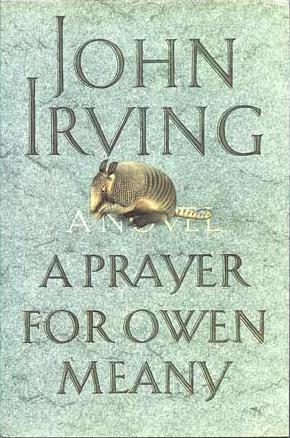
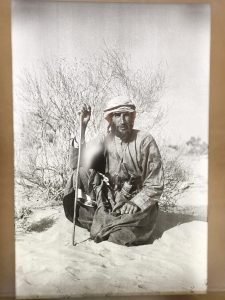




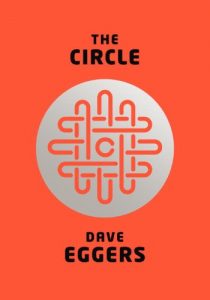
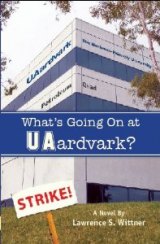
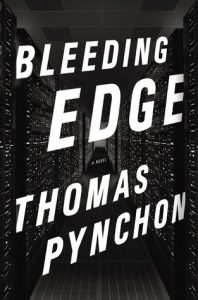
Be First to Comment